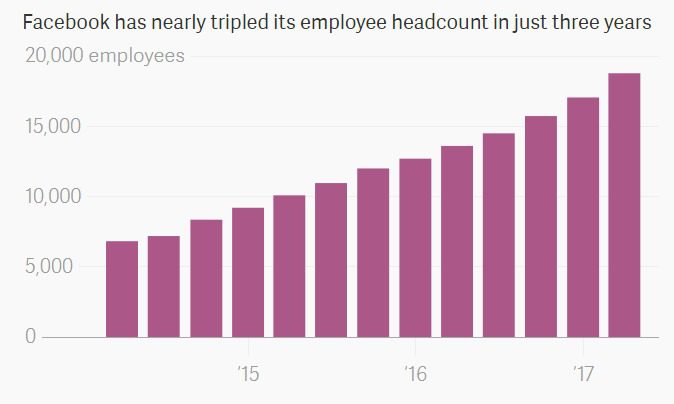New Bay Area Tech Jobs Emerge for MBAs

As every aspect of our lives increasingly becomes tangled in the tech’s tendrils, we have seen many opportunities for professionals from a wide swath of backgrounds accompany the rapacious growth of the industry.
MBAs, long ago personas non-grata in Silicon Valley, are now in high demand at iconic brands like Apple (CEO Tim Cook is a Duke Fuqua alum), Facebook (COO Sheryl Sandberg graduated with a Harvard MBA in 1995), and Microsoft (CEO Satya Nadella is a Chicago Booth alum).
This week’s new openings are largely found in California, with a litany of Bay Area Tech jobs ideal for MBA graduates who want to work in an environment where they can “move fast and break things,” to quote Mark Zuckerberg.
Five Surprisingly Lucrative MBA Destinations

Even though the most common MBA careers are those in the areas of consulting, banking and finance, there are other options out there. In fact, you’d be surprised to learn which companies truly value hiring MBAs into high paying management positions, and the sectors those firms occupy. Whether its tech, media, or retail, here’s a breakout of five surprisingly lucrative MBA destinations. Continue reading…
Top MBA Recruiters: IBM

Finding a job after graduating with your MBA isn’t typically the issue. There are hundreds of industries and companies that would be happy to hire a freshly minted MBA graduate. The trouble is choosing the right company and job for you. If IBM hasn’t been on your list of top tech companies, maybe it should be.
About IBM
Headquartered in Armonk, New York—north of NYC and bordering Connecticut—IBM (International Business Machines Corporation) is a multinational technology company that operates in over 170 countries worldwide. It got its start in 1911, and since that time has manufactured leading-edge computer hardware, middleware, and software. The company also provides hosting and consulting services across the technology industry on topics ranging from mainframe computers to nanotechnology.
IBM is dedicated to a constant state of innovation, which is evidenced by its performance. In 2017, the company earned $79.1 billion in revenue and demonstrated that it’s still a cutting-edge technology company by expanding on many of its services including the IBM Cloud—who’s revenue accounted for 21 percent of total revenue. Other top products from the company include:
- z14: The world’s most powerful transaction system that encrypts data at scale, all the time.
- POWER9: POWER9 systems and software cut training times by 4x and boost AI accuracy.
- IBM Q Experience: The world’s first (and only) prototype 50-qubit system, which leads in quantum computing.
And IBM is always looking for new ways to be competitive. Last year, the company spent $5.6 billion on research and development. And in 2016, IBM filed 8,000 patents (the most of any company). It’s a company that is moving forward quickly, which can make it an exciting prospect for many MBA students. So, why should you work for IBM?
Why IBM?
Nicknamed Big Blue, the appeal of working for a company like IBM is fairly obvious. It’s one of the world’s largest employers with over 380,000 employees as of 2016, and those employees are top notch. Throughout the company’s history, employees have been awarded:
- Five Nobel Prizes
- Six Turing Awards
- Ten National Medals of Technology
- Five National Medals of Science
And some former IBM employees include Apple CEO Tim Cook, Microsoft Chairman John W. Thompson, SAP Co-Founder Hasso Plattner, and former Lenovo CEO Steve Ward.
In addition, if you choose to work for IBM, you have the opportunity to work almost anywhere in the world. The company has several main campuses across the globe including:
- Austin, Texas
- Raleigh-Durham, North Carolina
- Rochester, Minnesota
- New York City, New York
- Silicon Valley, California
- Rome, Italy
- Winchester, UK
- Johannesburg, South Africa
- Tokyo, Japan
And that’s just to name a few of IBM’s premier locations. And no matter where you land a job, you’ll be called an “IBMer” and receive a myriad of benefits including group life insurance, survivor benefits, paid vacation, and more.
In 2017, IBM was also recognized by Mogul as one of the Top 100 Innovators in Diversity & Inclusion as well as one of the Top 100 Companies for Millennial Women. And in 2015, IBM was named to Working Mother’s 100 Best Companies list for the 30th consecutive year.
Landing a Job at IBM
So, how do you land a job at IBM as a new MBA graduate? There are a few options. The first is the IBM General Management Leadership Development Program (GMLDP), which is the premier leadership development program for top MBA graduates. If you’re accepted, you’re hired into IBM on an accelerated path to leadership with opportunities across many of IBM’s areas including cloud, Watson, digital, offering management, and consulting.
And speaking of consulting, MBA graduates also have the opportunity to work as consultants in IBM Global Business Services. Within this area, MBA consultants are given a chance to combine sophisticated analytics with market-leading global solutions to provide deep industry insight and expertise alongside an actionable plan.
At any given time, there are over 5,000 job openings available in every industry and area from project management to marketing. Some available jobs for MBA graduates include:
- Strategy Consultant
- Projects Manager
- Account Executive
- Offering Manager
- Associate Partner for Tech/Data Strategy
- Digital Business Consultant
- Business Analyst
Meet an Employee
According to Nish Parekh, who leads IBM’s client and partner programming teaching businesses how to use IBM’s Watson technology, she’s living her dream. With Watson, she gets to work on the leading edge of AI technology and touch a variety of industries, which is exciting in and of itself.
“They bring in a lot of people from different parts of IBM, as well as some folks from outside IBM. Seeing the mix and all these people work together is fun. I get to learn from them,” Parekh told Fast Company. “Also, one of the greatest things about my job is the ability to stay on top of the latest and greatest technology. AI is up and coming; it’s exciting to be a part of that moment.”
Facebook Tops Glassdoor’s 100 Best Places to Work List

Employer review website Glassdoor, which allows users to read anonymous employee testimonials about employers, has revealed its annual “Best Places to Work” list, with familiar MBA recruiters Facebook, Bain & Co, and Boston Consulting Group (BCG) earning the top three spots.
Why Facebook?
Since 2011, the social media empire has been one of Glassdoor’s most praised companies to work for, earning a top five spot seven out of the past eight years, including three number one overall awards. Facebook employees are often given extensive benefits, including four months of paid maternity leave—a policy often considered a luxury in the U.S., which has no legally mandated paternity leave policies for employers. As well, earlier this year, Facebook COO Sheryl Sandberg announced the company would implement paid sick time for employees and family members.
With increasing revenue streams, the company’s hiring numbers have continued to swell, with nearly 19,000 employees as of earlier this year—a 38 percent jump from March 2016 to March 2017. In fact, just this week, the company announced it will be adding 800 more jobs at its new London office.

Data via Facebook, graphic by The Atlas/via Quartz.
Of course, the central pitch to work at the social media monolith may be predicated on the payment of employees. According to Paysa, the average Facebook salary is north of $250,000 annually, combining base pay, bonuses, and equity. Most jobs at the company start at, at least, $70,000 USD annually, with business management roles starting at $135,000.
The company has also made a concerted effort at diversifying its hiring. Speaking with Forbes, Lori Goler, vice president of people, said, “Diversity is critical to our mission at Facebook, because we serve a community of 2 billion around the world, and of course there’s diversity in that community.”
The company, according to Forbes, employs between 33 and 35 percent women, and there has been considerable gains among women employed with computer science and engineering backgrounds, as well as a 500 percent increase in employment among those of African descent since 2014. In the interview, Goler added, “We’re nowhere near where we want to be, but we’re at least hearted to see that at least we can make some progress.”
Check out Facebook’s graduate student recruitment page here.
Consulting Companies Still Reign
While certain statistics indicate a wave of MBA grads may be leaving consulting in favor of tech-centric employers, as evident by the recently released Northwestern University Kellogg School of Management employment report, consulting companies are remain one of the primary targets for MBA students and graduates, and for good reason.
Bain & Co., like Facebook, has been endlessly praised by Glassdoor reviews, ranking among the top four best places to work every year since 2009. Like most of the companies on the year-end list, Bain offers ample benefits, including several months of paid maternity leave, comprehensive vacation and insurance policies, and one of the world’s best 401K offers. Fellow Boston metro company BCG also officers a considerable parental leave benefits package, retirement planning, and lofty salaries.

Inside the New York City BCG office/Photo via BCG.
Like Bain, BCG makes a concerted effort to bring in incredibly comparable MBA graduates, recruiting students from multiple prominent business schools like The Wharton School, NYU Stern, Columbia Business School, and many more.
Some Traditional Companies Remain Steady, While Giants Like Apple Stumble
Tech empire Google, not surprisingly, held its place among the top 10 companies—having never fallen lower than eighth overall since 2012. Just outside of the top ranking companies, McKinsey & Co. stayed within the top 20, while other notable heavyweights like Microsoft (39th), Capital One (69th), Deloitte (77th), Accenture (83rd), and Apple (84th), the world’s most successful consumer company, fell to the lower ends of the list.
Despite having the second most profitable year in company history, falling shortly behind it’s 2015 figures, Apple has been steadily dropping down Glassdoor’s annual Best Of list, posting its worst standing in the history of the ranking—nearly 50 spots worse than last year’s ranking of 36th overall.
Considering, however, that the annual ranking is comprises of over 500,000 companies, this drop may not be as serious as it would appear. The overall Glassdoor rating for Apple was 4.3, in contrast to Facebook, which boasts a current 4.6 rating. The average Glassdoor rating for employers, for context, is 3.3.
Some Surprises
Not every company included in the Glassdoor Best Of list could be considered a traditional MBA recruiters, including beloved U.S. west coast fast food chain In-N-Out Burger (fourth overall), growing athletic leisurewear empire Lululemon (sixth), wine company E. & J. Gallo Winery(14th), Delta Airlines (17th), and The Church of Jesus Christ of Latter-day Saints (19th), which provides “Excellent dental and medical coverage,” according to an anonymous employee. Plus, “you work with people who don’t swear.”
For a more extensive overview of the methodology behind the ranking, click here.
The Premiere International MBA is Waiting For You in London

“London doesn’t love the latent or the lurking, has neither time, nor taste, nor sense for anything less discernible than the red flag in front of the steam-roller. It wants cash over the counter and letters ten feet high.” – Henry James
It could be argued that London is the quintessential—or at least the original—international destination. Both defiantly English and seamlessly accommodating for an international community, London is a city in a state of constant reinvention.
Oscar Wilde once said London was composed of “beautiful idiots and brilliant lunatics,” which makes perfect sense that the city is presently and almost always the world’s global financial center (close but no cigar, Singapore). It’s no secret that the city leads the charge when it comes to gold, silver, derivatives, foreign exchange, money markets, debt securities, and international insurance. And London’s strategic location means it can stay connected to both the East and West at all times.
These reasons and so much more make London perhaps the definitive choice for b-schoolers who aspire to cut deals that bridge cultures and cross borders. For prospective MBAs with international ambitions, opportunities to interface with every conceivable industry abound in London, as do opportunities to collaborate with non-UK companies with London hubs.
We took the liberty of giving you the skinny on four London-area business degrees that will set you on a global path. Let’s take a deeper dive, shall we?
London Business School
The London Business School EMBA-Global Americas & Europe degree is a multinational collaboration that imparts the “insight, network and international perspectives” that today’s globally focused executive needs. The program—a partnership between LBS, Columbia, and the University of Hong Kong—is available in two distinct paths for entrepreneurs, managers, or executives. EMBA-Global Americas & Europe students earn two MBAs as they study in New York and London, while EMBA-Global Asia students bridge the gap between East and West as they study in Shanghai, Hong Kong, New York, and London. Forbes ranked LBS’ international degree first overall in terms of its return on investment, as its 2012 class earned average salaries of $119,100 and paid back their investment in 3.4 years.
Imperial College London
The ICL’s Global Online MBA is a two-year, part-time degree that combines “innovative thinking and insight with new technology to develop practical solutions to real world issues, benefiting business and improving society.” The Global MBA is structured to maximize intimacy and in-class time, culminating in a week-long Capstone Business Game project.
CHECK THIS OUT: Oxford Saïd Dean, Together with Apple’s Tim Cook, Launches New Entrepreneurial Hub
Oxford University Saïd Business School
The Saïd Business School 13-month masters-level Global Business Diploma is focused on giving graduates the tools to “undertake the senior international responsibilities which drive organizational success.” Director Kathy Harvey explains that the degree is guaranteed to “provide insights to anyone operating, or aspiring to operate, in a global environment.” Graduates will have an advanced “understanding of the issues involved in conducting business in a global landscape,” particularly “global business strategy, risk and reputation, corporate diplomacy and doing business in emerging economies.”
Cambridge University’s Judge Business School
The Judge Business School at Cambridge University Global Business concentration emphasizes cross-cultural differences; doing business in/with emerging economies; managing the multinational enterprise; and multinational organizations in social and environmental issues. The concentration was developed specifically for MBA students “seeking careers in careers at multinational organizations; small and medium-sized enterprises in sectors that are affected by international pressures; and students with a general interest in the role of organizations in global issues.”
Oxford Saïd Dean, Together with Apple’s Tim Cook, Launches New Entrepreneurial Hub

Building on the success of Saïd Business School’s Oxford Launchpad and Skoll Centre for Social Entrepreneurship, Oxford University has launched a new entrepreneurial hub: the Oxford Foundry. Saïd Dean Peter Tufano and Apple CEO Tim Cook helped kick things off at an October 11 launch event.
The new student-led and student-centric hub will be open to all 23,000 Oxford students and is part of an effort to inspire campus-wide innovation. Its focus will be to help students develop their entrepreneurial skills as well as create and scale ventures.
The Oxford Foundry will welcome students from all academic disciplines, from engineering and medicine to history and business. The goal is to take these students from all different backgrounds and bring them together to learn from one another, generate new ideas, and tackle business and societal issues.
In particular, the new hub will support students in the three following ways:
- Community Building: The Oxford Foundry will draw inspirational and leading figures in the entrepreneurial world to speak to students and exchange ideas. It will also have a student advisory board and will partner with societies across the university including the 10,000-strong Oxford Entrepreneurs.
- Experiential Learning: The Oxford Foundry will host problem-solving competitions and workshops to help students put various skills and ideas to work.
- Start-Up Support: Each year, a select number of ventures will receive support including dedicated workspace, access to networks, and industry expertise to scale and start their ventures.
Oxford has a strong history of entrepreneurship and has produced more founders of “unicorn” businesses (worth $1 billion or more) than any other school in Europe. The new Oxford Foundry promises to only further strengthen this entrepreneurial community.

A look inside the new Oxford Hub.
“Entrepreneurship is of increasing importance to students. As a generation, millennials desire to be more socially responsible, innovative and to make an impact,” Oxford Foundry Director Ana Bakshi said in a university press release. “Whether starting their own ventures or aspiring to lead in organizations, the Oxford Foundry will develop students’ entrepreneurial skills, understanding, and self-efficacy. The aim is to create future leaders whatever career they pursue.”
The Oxford Foundry spans two floors in a renovated Victorian ice factory. It offers co-working space, presentation areas, a café, and incubator space for accelerating new ventures.
To learn more about the Oxford Foundry, visit the school website.
